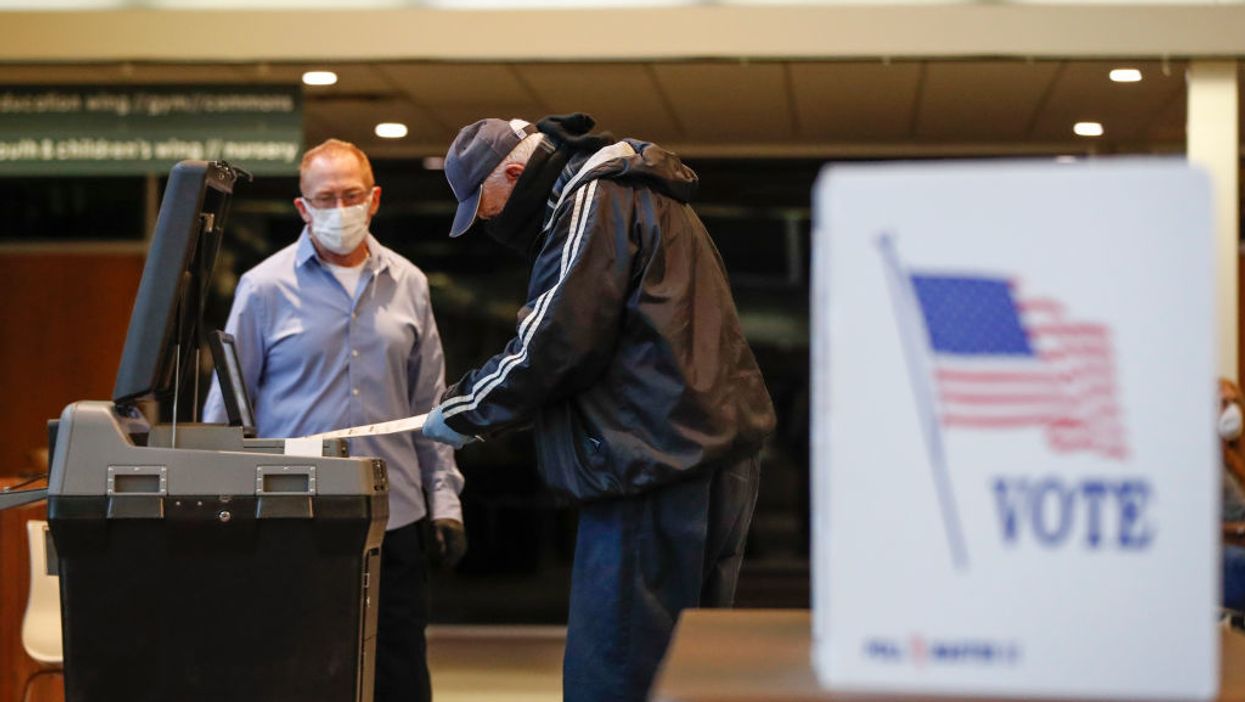
KAMIL KRZACZYNSKI/AFP via Getty Images

Look at this
A new study found no evidence that in-person voting at Wisconsin's primary election produced a "detectable surge" of COVID-19 cases.
A peer-reviewed study published in the August issue of the American Journal of Public Health examined Wisconsin's primary election on April 7, and what effect it had or didn't have on spreading the coronavirus.
Approximately 1.55 million people voted in April's primary, nearly 1.1 million cast their vote via absentee ballot. The more than 400,000 people who voted in-person did not spur a significant spread of the coronavirus.
Researchers from the Stanford University's Graduate School of Business and the University of Hong Kong's School of Public Health, some affiliated with the World Health Organization, analyzed confirmed COVID-19 cases and new hospitalizations in the weeks before and after the April 7 election. The researchers used data from the Wisconsin Department of Health Services.
In Wisconsin, coronavirus cases "steadily declined throughout April," falling from the peak of 101 on April 3 to only 14 on April 18. The researchers used a coronavirus incubation period of 10-15 days.
Overall, there were 71 people who tested positive for COVID-19 who voted in-person or were poll workers during the Wisconsin primary election.
"To put this information into perspective, if we assume that the SARS-CoV-2 fatality rate among symptomatic patients who were physically capable of voting in person on April 7 (e.g., not including nursing home residents) is 1% (using the fatality rate of known cases for people younger than 60 years), then (in the worst case, in which all 71 cases were attributable to voting) we would expect 0.71 deaths out of 413,220 people, which is the fatality risk of driving an automobile approximately 140 miles," the authors stated.
"Taken together, there is no evidence to date that there was a surge of infections due to the April 7, 2020 election in Wisconsin," the authors wrote. "Taken together, it appears the voting in Wisconsin on April 7 was a low-risk activity."
Before the election, many pundits, politicians, and media outlets warned how dangerous it was to hold the primary during the COVID-19 pandemic.
"No one should be forced to choose between their right to vote and their right to stay healthy like the debacle in Wisconsin this week," former President Barack Obama tweeted.
By late April, experts were shocked when there was not a spike in coronavirus-related deaths.